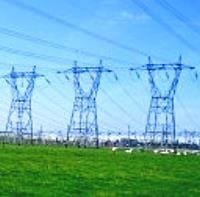(BRUSSELS) – Capacity mechanisms have a strong role in increasing security of electricity supply but many EU Member States must be more thorough assessing need and design to ensure they are targeted and cost-effective.
So says an interim report consolidating the findings and tentative conclusions of the sector inquiry into capacity mechanisms, adopted Wednesday by the European Commission, which now invites Member States, stakeholders in the electricity sector and others to submit comments on its initial findings.
The report says that unnecessary and badly designed capacity mechanisms can distort competition, hinder electricity flows across borders and lead to consumers overpaying for electricity.
The Commission now invites Member States, stakeholders in the electricity sector and others to submit comments on its initial findings.
What are capacity mechanisms?
An increasing number of Member States are taking action to secure their electricity supplies and prevent potential black-outs by introducing capacity mechanisms.
Capacity mechanisms are measures taken by Member States to ensure that electricity supply can match demand in the medium and long term.
Capacity mechanisms are designed to support investment to fill the expected capacity gap and ensure security of supply. Typically, capacity mechanisms offer additional rewards to capacity providers, on top of income obtained by selling electricity on the market, in return for maintaining existing capacity or investing in new capacity needed to guarantee security of electricity supplies.
Capacity mechanisms have an impact on competition in the internal electricity market. Many of these mechanisms involve State aid, so they are subject to EU State aid rules. The European Commission has launched a sector inquiry, established a Working Group with Member States and started individual assessments of Member States’ capacity mechanisms on the basis of the Guidelines on State aid for environmental protection and energy 2014-2020 (“EEAG”).
Commissioner Margrethe Vestager, in charge of competition policy, said: “European consumers and companies should not have to face black-outs, and capacity mechanisms can help to reduce this risk. At the same time, consumers should not overpay for electricity and competition should not be undermined. The report published today shows that there is a lot of room for Member States to improve how they assess whether capacity mechanisms are needed, and how they design them. Mechanisms that are open to electricity providers across EU borders are key to building a true Energy Union in Europe.“
The Commission inquiry on capacity mechanisms shows capacity mechanisms can increase security of electricity supply but also points to a lack of proper and consistent analysis by many Member States of the actual need for capacity mechanisms. It also appears that most capacity mechanisms could be better designed in order to be more market-based and more cost effective. These findings do not prejudge the Commission’s assessment of the compatibility with EU state aid rules of any individual capacity mechanism, which requires a case-by-case analysis.
Factsheet for further details
Report and staff working document








